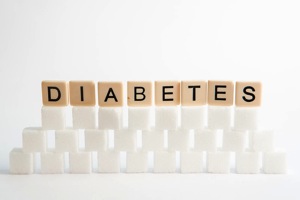
For years, medicine has pegged obesity as the number one cause of diabetes. However, results of a recent large epidemiological study suggest it's sugar that plays a pivotal role in diabetes. The study also illustrates that how many calories you eat isn’t as important as what makes up those calories — the study found calories from sugar is more damaging than calories from other foods.
Researchers looked at the correlation between sugar availability and diabetes in 175 countries during the last ten years and controlled for such factors as obesity, calories consumed, diet, economic development, activity level, urbanization, tobacco and alcohol use, and aging.
They found the more sugar a population ate the higher the incidence of diabetes, independent of obesity rates. According to Sanjay Basu, MD, PhD, the study's lead author, "We're not diminishing the importance of obesity at all, but these data suggest…additional factors contribute to diabetes risk besides obesity and total calorie intake, and that sugar appears to play a prominent role." The study provides the first large-scale, population-based evidence for the idea that perhaps it's not just calories, but the type of calories, that matter when looking at diabetes risk.
All calories are not created equal
One thing is clear from the study – although by definition all calories give off the same amount of energy when burned, sugar is uniquely damaging to the body.
The study showed an additional 150 calories from any food source caused a 0.1 percent increase in the population's diabetes rate whereas an additional 150 calories of sugar caused it to raise a full 1 percent. That's a ten-fold increase. To put it into perspective, a can of soda contains roughly 150 calories of sugar. Consider the average American consumes 22 teaspoons of added sugar a day, or about 350 calories' worth, and it's clear why diabetes is the fastest growing disease in history.
The study also showed the longer a population was exposed to excess sugar, the higher the diabetes rates were. The clincher: Diabetes rates dropped when sugar availability dropped, independent of changes in calorie intake, physical activity, or obesity rates.
Does sugar cause diabetes?
Does sugar cause diabetes? It's too early to say definitively, but this study clearly shows a correlation and spotlights the need for more research. Dr. Basu suggested sugar affects the liver and pancreas in ways that need more exploration.
What can you do to prevent or manage diabetes?
While there are various forms of diabetes, Type II diabetes, which is caused by diet and lifestyle, accounts for 90 percent of all cases of diabetes.
What can you do to minimize your risk for diabetes? Reducing your sugar intake is a great place to start. In functional medicine we understand that every body is unique. We start with a careful evaluation of your health history, lifestyle, heredity, nutritional status, and environmental risk factors. We help you customize a program that includes diet, exercise, stress management, nutritional support, detoxification, gut health support, and dampening of inflammation — all of which can dramatically affect your insulin and blood sugar levels and hence your risk of diabetes. This can reverse the path to diabetes and sometimes even the disease itself.
Ask my office for more information on support with blood sugar imbalances and diabetes.



Latest from the Blog
Autoimmune Disease Management with EBOO Therapy
July 17, 2024Autoimmune diseases, characterized by the immune system attacking the body’s own tissues, present significant challenges in treatment and management. Extracorporeal Blood Oxygenation and Ozonation (EBOO) therapy offers a promising adjunctive approach to managing autoimmune conditions. Functioning similarly to a dialysis machine, EBOO filters the blood to remove toxins and pathogens that may trigger autoimmune responses. […] Read more
Latest from the Blog
Detoxification and EBOO Therapy: Optimizing Cellular Health
Detoxification plays a crucial role in maintaining optimal health in today’s toxin-laden environment. Extracorporeal Blood Oxygenation and Ozonation (EBOO) therapy offers a sophisticated approach to detoxifying the bloodstream and enhancing overall well-being. Operating similarly to a blood filtration system, EBOO effectively removes toxins, pesticides, and chemicals that accumulate in the body, supporting the body’s natural […] Read more